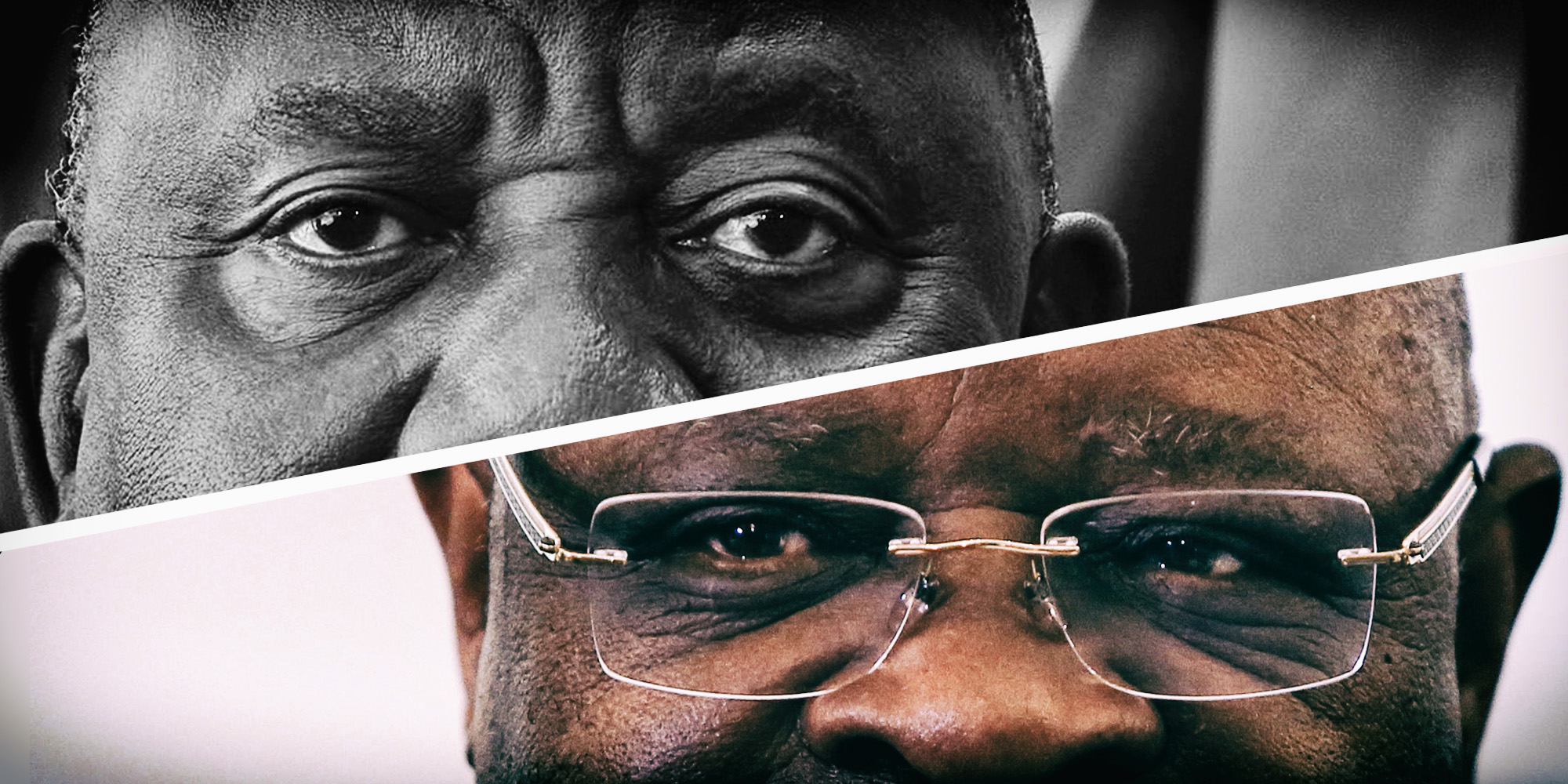Chief Justice Raymond Zondo pulled no punches in his criticism of the executive on the final day of the 2023 Judges’ Conference, saying the executive was “unwilling to let go” of the administration of magistrates.
Zondo, who is at the tail-end of his short term as Chief Justice, was critical of the executive’s seeming unwillingness to give the third arm of government full independence, saying judges at the conference had decided the issue “should be expedited”.
Zondo had spoken about the issue on Tuesday, 5 December, the opening day of the conference and it seems his initial comments were noted. He said the Presidency had contacted him on Wednesday to set up a meeting. There were plans for him to meet Ramaphosa in the coming week, Zondo said.
Despite this momentum, it was not clear what the judiciary would do if the executive chose not to move forward with any changes, both legal and administrative.
Read more in Daily Maverick: Judicial independence is key priority for new Chief Justice Raymond Zondo
“What will the judiciary do if the executive doesn’t come to the party? The fact of the matter is that the judiciary has got to get money from the executive. If money is not made available to the judiciary so that certain matters that need to be addressed can be addressed, there is very little that we can do,” he said.
Zondo said many issues that were experienced and witnessed by judges could be fixed if they did not have to rely on the executive for funding.
“That is part of the reason why we insist that there is full institutional independence. Very often we must go to the executive and say, we need this, we need that. It’s like we must go to them and beg,” he said.
In 2010, former President Jacob Zuma established the Office of the Chief Justice (OCJ) as a national department with the Chief Justice as its head. The OCJ oversees some administrative matters relating to the judiciary, but does not have full control of court funding. It also does not oversee magistrates, who fall under the Department of Justice.
Read more in Daily Maverick: Zondo thanks Zuma for beginning move to independent judiciary, calls on Ramaphosa to do more
The department oversees the creation and maintenance of courts and the creation and filling of judicial vacancies, which judges argue should fall under the ambit of the OCJ. The judiciary made a proposal on how an independent judiciary should be set up 10 years ago, but has still received no response. Zondo said this was “unacceptable”.
“Short of litigation, what could the judiciary do if the executive has been given our proposals and they decided they are not going to respond for 10 years? The judiciary puts pressure and talks to them; in the end, if they decide they are not going to respond, that is just that,” he said.
Asked what the judiciary would do to ensure that changes were made, Zondo made an impassioned plea to members of the public to advocate for the changes to be made urgently.
“In some countries, some members of the public resort to litigation against the government to force government to make resources available to the judiciary so that the judiciary can do its job properly,” he said.
“We need the public to be aware and to know that when we talk about institutional independence and a judicial-led court administration model, we don’t just need it for ourselves. We need it in order to serve the public better. We want to be able to serve the public better. That is one of the sentiments that has been stressed in the conference.
“The public must ask the executive, ‘Why are you not creating posts for judges in courts’ that you have been told about? ‘Why are you not building more courtrooms?’
“In other countries, enough money is given to the judiciary which has got institutional independence. Where it is the judges who decide and they can put money aside and make sure the courtrooms are built. But that is not the position in South Africa,” said Zondo.
Zondo joined the Constitutional Court in 2012. There is a 12-year term limit for Constitutional Court justices, meaning he will leave the court and step down as Chief Justice next year.
Questions of discipline
The conference also discussed the issue of disciplining judges, which is handled by the Judicial Conduct Committee (JCC). The JCC adjudicates on whether complaints against judges have merit and can refer them to a Judicial Conduct Tribunal. Sitting and retired judges can be called on to sit on either the committee or tribunal and Zondo noted that there was a need for a change in legislation.
The Judicial Service Commission (JSC) Act sets out the disciplinary process and the conference felt the legislation should be amended to allow more judges to serve.
“We include retired judges to be part of the JCC where we can get them. But we mustn’t take for granted the availability of retired judges, because they are busy with arbitrations. We are going to have to ask that the JSC Act be amended to allow the JCC to have many members, so that complaints can be dealt with by many people. The burden of doing JCC cases will be dealt with by many. In that way, they will be dealt with expeditiously,” Zondo said.
Parliament is due to vote on the impeachment of two judges, Western Cape Judge President John Hlope and Nkola Motata. Both have been found guilty of misconduct through Judicial Service Commission processes. DM




